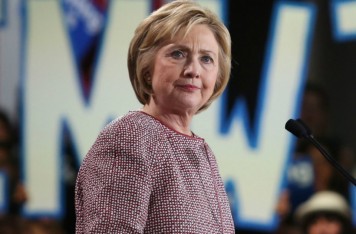
The FBI’s planned disclosure is directly related to an effort by well-known attorney Los Angeles attorney E. Randol Schoenberg, who filed a Freedom of Information Act lawsuit against the Department of Justice that sought the “immediate disclosure of the FBI search warrant for the e-mails of Hillary Clinton and Huma Abedin on Anthony Weiner’s laptop.”
One of the main points of contention in this case was the privacy right of Clinton — or any person who wasn’t ultimately charged with a crime. However, the judge determined that essentially all went out the window given the bizarre nature of the case including FBI Director James Comey’s very public press conference. After Comey’s remarks, Clinton then decided to publicly respond at campaign rallies. Thus, the judge determined Clinton essentially waived her privacy right arguments that the uncharged subject of an investigation typically can rely on.
In the words of the judge, Clinton has “little remaining privacy interest in the release of documents identifying her as the subject of the investigation.”
In Monday’s order, the judge ultimately concluded:
The search warrant, the application for the search warrant, the affidavit in support of the application for the search warrant, and the search warrant return will be unsealed and posted on the Court’s electronic case filing system under the docket number listed above, subject to the redactions discussed above, at noon on December 20, 2016, unless an order is issued before then by the United States Court of Appeals for the Second Circuit staying or modifying this Order.
LawNewz.com obtained a copy of the order and is in the process of reviewing it.
READ the Order:
FBI Partial Unseal Hillary Email by LawNewz on Scribd
[image via Krista Kennell/shutterstock]